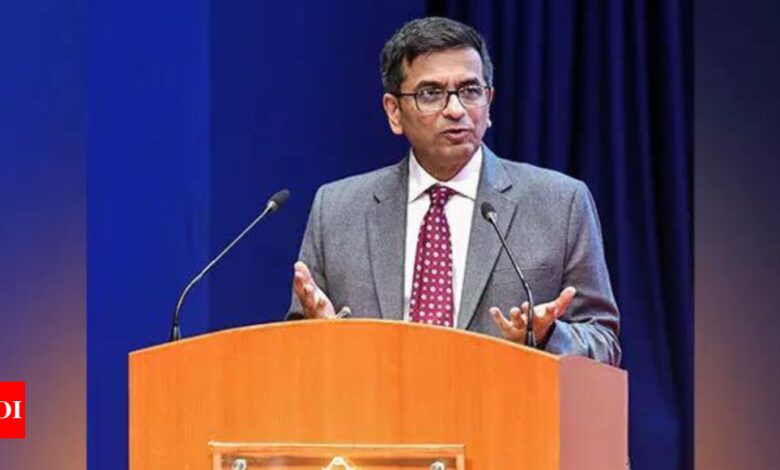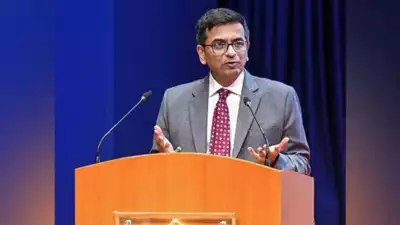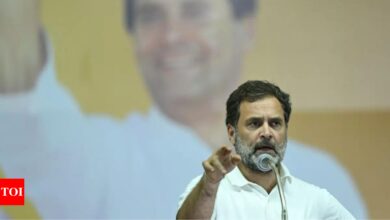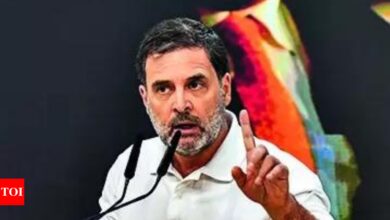India
CJI Chandrachud criticizes former judge Krishna Iyer’s ‘rigid economic theory’ on private property | India News – Times of India



These observations on Justice Iyer’s approach were made in the majority opinion written by Chief Justice DY Chandrachud on behalf of himself and six other judges on the bench.
The nine-judge bench, headed by the CJI, ruled by a majority of 7:2 that not all private properties can be classified as ‘tangible resources of the community’, otherwise states could acquire them for distribution for the purpose of ‘general interest’. under the Constitution.
“The doctrinal error in Krishna Iyer’s approach was to postulate a rigid economic theory, which advocates greater state control over private resources, as the exclusive basis for constitutional governance,” the CJI wrote in the 193-page judgment.
In 1977, a seven-judge bench had earlier ruled by a majority of 4:3 in the case of Karnataka versus Shri Ranganatha Reddy, that private resources did not fall within the ambit of ‘material resources of the community’.
Justice Iyer had delivered a dissenting opinion and held that the state possessed the authority to acquire private funds for distribution for public good. He has also consistently maintained this position in later statements.
In his judgment, Justice Chandrachud quoted several statements made by Justice Iyer in different judgments.
- The CJI said, “Declaring that Article 39(b) covers the distribution of all private resources is tantamount to endorsing a particular economic ideology and structure for our economy. The judgment of Justice Krishna Iyer in the Ranganatha Reddy case, which was followed in the Sanjeev Coke and Bhim Singhji cases among others, was influenced by a certain school of economic thought.”
- “For example, in Ranganatha Reddy, Justice Krishna Iyer observed that Article 39(b) ‘constitutes a directive to the State with a deliberate purpose to dismantle feudal and capitalist citadels of ownership’. In Bhim Singhji, Justice Krishna Iyer quoted Karl Marx in his judgment to observe that taking over land from large conglomerates is necessary to make Article 39 a ‘constitutional reality’,” he added.
- The Chief Justice of India noted that in the same judgment, Justice Iyer shared his views on the economic landscape and described it as being in a transitional phase undergoing gradual transformation.
- “Significantly, both Justice Krishna Iyer (in Ranganatha Reddy and Bhimsinghji) and Justice Chinappa Reddy (in Sanjeev Coke) consistently referred to the vision of the framers (of the Constitution) as the basis for putting forward this economic ideology as guiding principle of the constitution. However, as noted earlier in its judgment, the framers’ vision in drafting the Constitution was not to establish any particular form of social structure or economic policy for future governments,” the majority opinion read.
- The majority judgment, written by the CJI, held that while the phrase ‘material resources of the community’ could theoretically include private resources, the broad interpretation offered by Justice Krishna Iyer in his minority judgment in Ranganath Reddy and relied upon later by Justice Chinnappa Reddy Sanjeev coke cannot be accepted.
- “The Constitution is designed in broad terms to enable subsequent governments to experiment with and adopt a structure of economic governance that would serve the policies for which they are accountable to the electorate,” it said CJI.
- “According to Dr. Ambedkar, if the Constitution were to prescribe a particular form of economic and social organization, it would amount to taking away the freedom of people to decide in which social organization they want to live,” he added.




